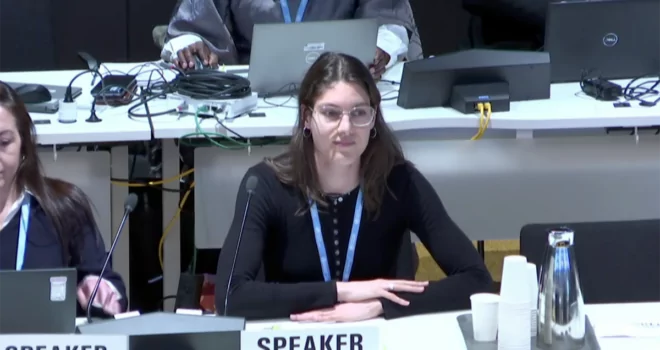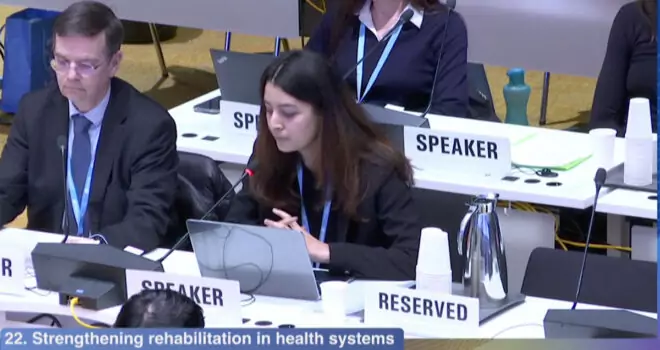Sophia Antipolis, 16 December 2022: The current model for randomised clinical trials must be redesigned for the 21st century, according to the European Society of Cardiology (ESC), American Heart Association (AHA), World Heart Federation (WHF) and American College of Cardiology (ACC).
The joint statement is published simultaneously in the flagship journals of all four organisations: European Heart Journal,1 Circulation, Global Heart and Journal of the American College of Cardiology.
ESC President Professor Franz Weidinger said: “Randomised trials are the gold standard method for evaluating new therapies and improving patient care. However, the cost and complexity of trials are becoming prohibitive and the current model is unsustainable. Cardiology provided the foundation for an era of highly successful clinical trials and is well placed to lead the way on modernisation.”
“Without sustained efforts to increase the application of streamlined approaches, and a more supportive regulatory environment for those who do choose to generate randomised evidence (instead of the adversarial approach that is often taken in regulatory audits), patients will suffer from important clinical questions not being addressed reliably, either because trials are too small or, due to excessive financial or bureaucratic obstacles, are never done at all,” states the paper.
The COVID-19 pandemic necessitated highly streamlined trials that were easy to administer in busy hospitals. Only essential data were collected and much of the follow-up information was obtained from national electronic health records (EHRs) when possible. In addition, digital advances have allowed app-based data collection, remote monitoring and virtual trial visits which can enhance efficiency while maintaining safety.
WHF President Professor Fausto Pinto said: “The pandemic reinforced the value of digital technology in healthcare and demonstrated the power of partnerships in global health. It also showed the importance of using digital tools to improve the organisation, development, and implementation of clinical trials, essential to drive innovation in care and meet unexpected challenges such as a pandemic. The future of clinical investigation needs to be carefully tailored to address the several challenges it faces, and digital technology will certainly play a major role.”
EHRs have huge potential for trial recruitment and follow-up but remain an underused resource. This is due to restricted access to records and reticence among regulatory authorities to accept EHR-based outcome data. On the other hand, inappropriate emphasis is often placed on observational analyses of routine healthcare data to bypass the challenges of randomised trials.
AHA President Dr. Michelle A. Albert said: “With this document, our societies wish to engage in the development of guidance that allows broader use of real-world data, housed in routine EHRs, to conduct the trials that are needed to improve patient care along with addressing unmet medical needs. Pragmatic clinical trials that allow flexibility while promoting innovation are required to address health care needs for different racial, ethnic and socioeconomic groups. This guidance is also an opportunity to have a close look at the real-world implementation of care practices designed to improve health equity.”
During the past 25 years there has been an enormous increase in the rules and related bureaucracy governing clinical trials. The International Council for Harmonisation (ICH) guideline for Good Clinical Practice (GCP) aims to ensure the safety and rights of trial participants and safeguard patients impacted by the results. However, the guideline is often over-interpreted thereby prohibiting the conduct of affordable clinical trials.
ACC President Dr. Edward T. A. Fry said: “Clinical trials like the Apple Heart Study, along with many conducted throughout the COVID-19 pandemic, have shown it is possible to conduct high quality trials safely, efficiently and effectively. Importantly they have also highlighted new opportunities to reach patient populations spanning race and gender, socioeconomic status and geography. As such, the ACC, ESC, AHA and WHF fully support adoption of the revised guidelines put forth by the Good Clinical Trials Collaborative (GCTC) that keep the best parts of existing clinical trial guidelines, while also acknowledging new innovations and technologies available to clinical trial researchers both now and looking to the future. In a rapidly changing and increasingly global world, there is no excuse for clinical trials not to keep pace with recent advances and the proposed GCTC guidelines are an important step forward in ensuring we are able to optimise our efforts to provide the best possible patient care and outcomes when it comes to new and emerging medical therapies, devices or treatment strategies.”
#RedesignRCTs
ENDS
For media inquiries please contact:
Olivia Seward – Associate Director, Communications, ESC, press@escardio.org
Michelle Kirkwood – National Science Media Relations Director, AHA, michelle.kirkwood@heart.org
Borjana Pervan – Communications Director, WHF, Borjana.Pervan@worldheart.org
Sam Roth – Senior Media Relations Associate, ACC, sroth@acc.org
References
1Bowman L, Weidinger F, Albert MA, et al. Randomized trials fit for the 21st century. A joint opinion from the European Society of Cardiology, American Heart Association, American College of Cardiology, and the World Heart Federation. Eur Heart J. 2022. doi:10.1093/eurheartj/ehac633.
Link will go live on publication: https://academic.oup.com/eurheartj/article-lookup/doi/10.1093/eurheartj/ehac633
About the European Society of Cardiology
The European Society of Cardiology brings together health care professionals from more than 150 countries, working to advance cardiovascular medicine and help people lead longer, healthier lives.
About the World Heart Federation
A leader and convener in global cardiovascular health, The World Heart Federation (WHF) unites the cardiovascular community and drives the agenda to reduce the global burden of cardiovascular disease, sharing knowledge and guiding policy. As the principal representative body of the global cardiovascular community, and together with our Members in more than 100 countries, we work to end needless deaths and build commitment for improved cardiovascular health. We believe in a world where heart health for everyone is a fundamental human right. To learn more, visit worldheart.org.
About the American Heart Association
The American Heart Association is a relentless force for a world of longer, healthier lives. We are dedicated to ensuring equitable health in all communities. Through collaboration with numerous organizations, and powered by millions of volunteers, we fund innovative research, advocate for the public’s health and share lifesaving resources. The Dallas-based organization has been a leading source of health information for nearly a century. Connect with us on heart.org, Facebook, Twitter or by calling 1-800-AHA-USA1.
About the American College of Cardiology
The American College of Cardiology envisions a world where innovation and knowledge optimize cardiovascular care and outcomes. As the professional home for the entire cardiovascular care team, the mission of the College and its more than 56,000 members is to transform cardiovascular care and to improve heart health. The ACC bestows credentials upon cardiovascular professionals who meet stringent qualifications and leads in the formation of health policy, standards and guidelines. The College also provides professional medical education, disseminates cardiovascular research through its world-renowned JACC Journals, operates national registries to measure and improve care, and offers cardiovascular accreditation to hospitals and institutions. For more, visit acc.org.


